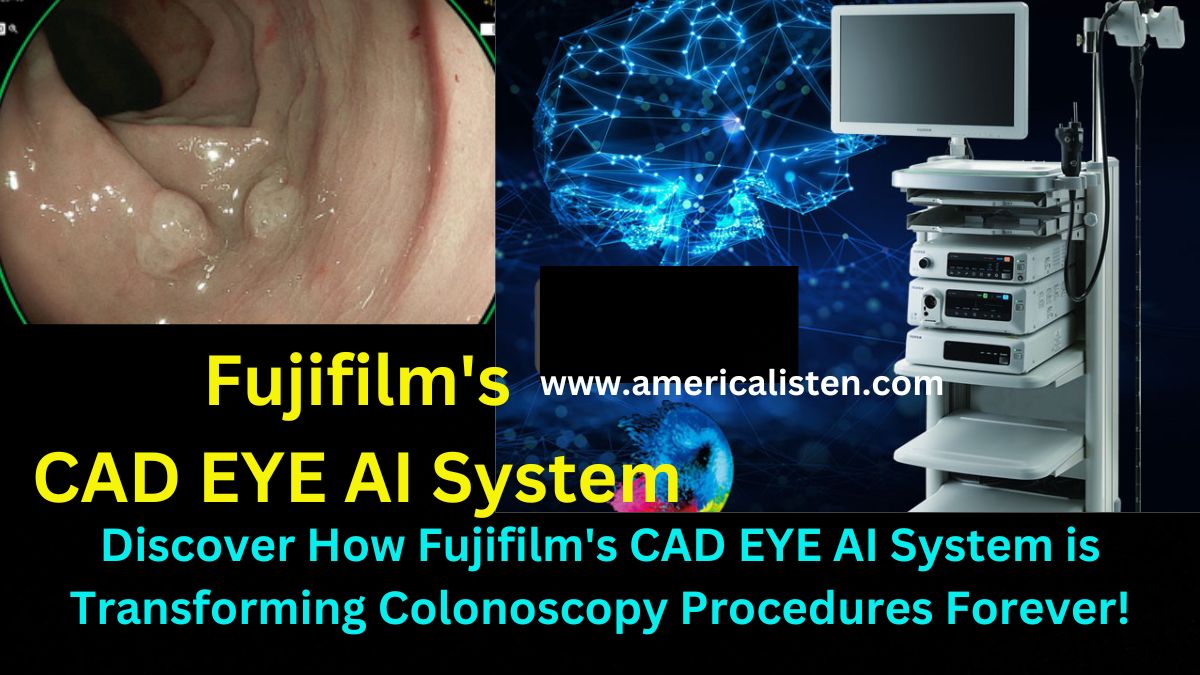In a groundbreaking move, Fujifilm has announced the FDA’s nod for its CAD EYE AI-powered detection system, revolutionizing endoscopic imaging. This cutting-edge technology empowers real-time detection of colonic mucosal lesions, such as polyps and adenomas, during colonoscopy procedures. By seamlessly integrating with Fujifilm’s Eluxeo endoscopic imaging system, CAD EYE equips endoscopists with a formidable tool to identify and remove pre-cancerous lesions, irrespective of their size, shape, or color.
CAD EYE marks Fujifilm’s entry into a market traditionally dominated by Medtronic and its GI Genius system. With its compatible expansion unit (Fujifilm EX-1) and endoscopy support software (EW10-EC02), this system promises a new era in colonic lesion detection and management.
Scheduled for commercial release this spring following a comprehensive limited market evaluation, CAD EYE stands as a testament to Fujifilm’s commitment to advancing healthcare. Tai Fujita, General Manager of Endoscopy at Fujifilm Healthcare Americas Corporation, expressed pride in their dedication to delivering top-tier imaging and optics to combat public health challenges. He emphasized the potential of CAD EYE to significantly enhance the quality of colonoscopy procedures.
Fujifilm’s CAD EYE system, developed using state-of-the-art deep learning technology at its Tokyo-based global AI technology center, sets a new standard in lesion detection. Validated using histologically confirmed polyps in clinical images, CAD EYE operates seamlessly with both white light imaging and Linked Color Imaging (LCI). Notably, it introduces an enhanced visualization mode that distinguishes the red color spectrum, thereby improving mucosal visualization.
The technology’s prowess lies in its ability to detect lesions that might evade conventional detection methods, including flat lesions and those situated at the periphery of the endoscopic view. CAD EYE provides real-time alerts to physicians through visual and auditory cues without disrupting the clinical workflow.
Clinical studies have demonstrated CAD EYE’s remarkable impact on colorectal cancer detection and diagnosis. It detects a significantly higher number of adenomas during screening and surveillance compared to conventional high-definition colonoscopy, all while maintaining procedure efficiency. Fujifilm reports a 17% increase in adenoma detection per colonoscopy compared to high-definition conventional methods, positioning CAD EYE as a game-changer in lesion detection.
Dr. Sravanthi Parasa of the Swedish Medical Center lauds Fujifilm’s AI CAD polyp detection algorithm, emphasizing its role in early lesion detection and risk reduction. This breakthrough not only enhances precision but also elevates patient outcomes, marking a pivotal advancement in gastrointestinal healthcare.
In essence, Fujifilm’s CAD EYE AI system represents a leap forward in endoscopic imaging technology, promising to redefine the standards of care in colorectal lesion detection and management.


